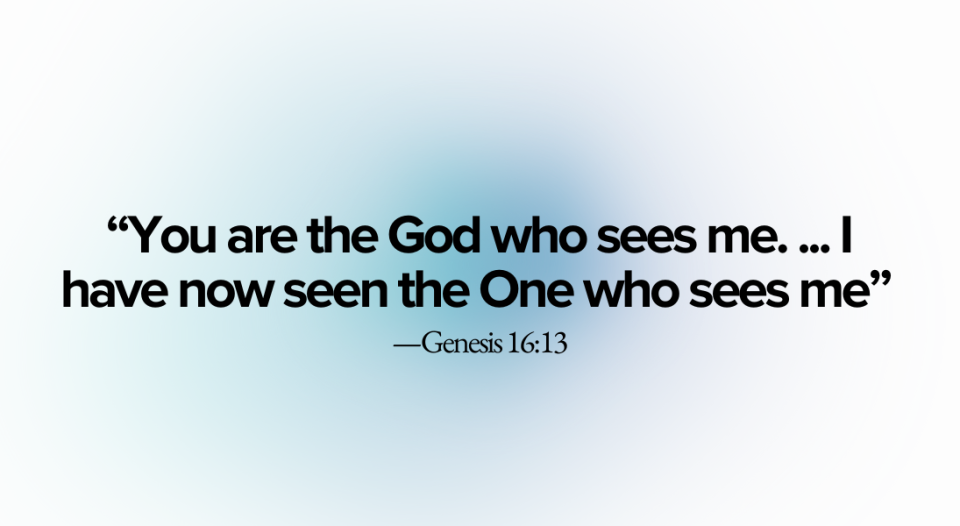For Asian Pacific Islander Heritage Month (API), I was asked to reflect on “Asians in the Bible.” I wish to focus on two characters who best represent the experience of API people: Hagar and Ishmael (Genesis 16 and 21:8-21).
Hagar is Sarah’s slave. She was given to Abraham to breed a male heir since Sarai was barren. This was successful, and Hagar became pregnant and produced a boy, Ishmael. This news traps Hagar and Ishmael in a cycle of being exiled to the wilderness and accepted back into Abraham’s house, a result of Sarah feeling threatened by them and Abraham’s indifference. Ultimately, Hagar and Ishmael were banished to the wilderness, discarded and never seen again.
Korean American theologian Grace Ji-Sun Kim writes, “Invisibility persists throughout the [API] story. Occupying a vague social status, APIs have long been perceived as a deferential foreigner, an individual with economic significance who exercises their inherent diligence in academic and professional spaces but possesses little social importance. As a result, Asian Americans are widely excluded from mainstream discussions of race in this country … and thus remain in an unstable state where they can be designated as good or bad depending on political tempers …” (Invisible: Theology and the Experience of Asian American Women; Fortress Press, 2021).
Invisibility is the experience of APIs in society and the ELCA. According to the 2020 U.S. Census, APIs comprise 8% of the total U.S. population, a 35% increase from the previous census. Yet, APIs are severely underrepresented in the most visible spaces of society. According to a 2021 study, despite APIs representing the second largest demographic across STEM career fields, they fall behind four major ethnic groups in midlevel and executive leadership positions. Within the ELCA, APIs account for less than 1% of its active membership and congregations. They are less visible among ELCA rostered ministers, representing about 2%, and no API leader has served on the Conference of Bishops in the ELCA’s 37-year history. These statistics reinforce the stigma that APIs are an invisible and “statistically insignificant” presence within society and the church.
As a result, APIs are often labeled as “model minorities” who are welcomed when their presence benefits the dominant structures of society and the church but are quickly discarded when they no longer provide value. As model minorities, they are also marginalized in conversations about race. API racism is softened in language to “Asian hate” in mainstream media and receives less attention compared to other racial groups. While ELCA API leaders organized a “first of its kind” celebration last year, this is an exception rather than the norm, as API invisibility persists at all levels of society and the church.
I do not share these statistics and realities to shame or blame anyone. Invisibility is how APIs experience racism in society and the church. Imposing and perpetuating invisibility on us leads to abuse, hostility and exile. We find ourselves “betwixt and between,” constantly struggling with the fact that we are “both invisible and necessary to culture,” Kim writes. Like Hagar and Ishmael, accepting our invisibility is easier than speaking out against it. We try to fit in despite knowing we don’t. We return to spaces of marginalization despite the pain caused by living in them. At the same time, API invisibility calls us to crucial spiritual work, challenging our motivations as Christians within society and the church who work for racial justice. Are we equitable in our efforts to celebrate and raise concerns for all marginalized people, or is it to increase numerical and financial growth and improve the institution’s reputation? Does our cause for racial justice come at the cost of exploiting, commodifying and creating competition between the very people we advocate for? We recognize, along with Kim, that “when we think about [APIs] as marginalized people, we recognize power imbalance and the need to give them their agency.”
API invisibility reveals that the sin of racism creates a war within all of us, whether marginalized or privileged. We resist doing and saying what we know to be morally right, despite knowing that Christ calls us and that we must. Not wanting to expose this internal battle, we all choose invisibility. It becomes easier to justify our current efforts rather than confess their inadequacy, their potential harm, and choose a better path. Yet, I dare to speak on behalf of all API to say there is hope. Hagar and Ishmael’s story does not end in invisibility. She proclaims: “You are the God who sees me. … I have now seen the One who sees me” (Genesis 16:13; New International Version). As APIs, we do not lose heart in the struggle for racial justice. Like Hagar and Ishmael, God makes us visible, giving us the moral courage to be visible and to lead a ministry of truly seeing others as God does!






